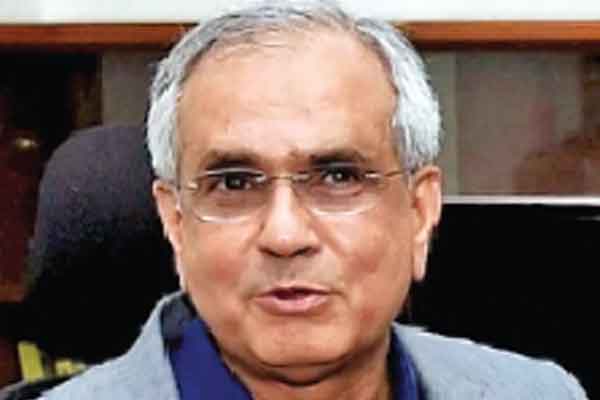
Bringing to sharp focus different thought processes of policymakers to revive the economy, Niti Aayog vice-chairman Rajiv Kumar (in pic) on Monday said there is a scope for stimulus package to boost the economy.
A day before, finance minister Arun Jaitley, while talking to reporters in Washington, had feigned ignorance about plans of a stimulus package. Rajiv Kumar’s views also contrast with the newly constituted Prime Minister’s Economic Advisory Council (PMEAC), which is not in favour of any step that will breach fiscal discipline.
Financial Chronicle on Monday highlighted the variance in thinking patterns of the finance ministry and the PMEAC with regard to reviving the slowing economy.
Bibek Debroy, who heads the PMEAC, is on record that “there is a consensus (among council members) that the fiscal consolidation exercise should not be deviated.”
To buttress his point, Debroy had referred to RBI governor Urjit Patel cautioning the government against a stimulus package to revive the sagging growth, arguing that breaching the fiscal deficit target will fire up inflation and hurt long-term macroeconomic stability.
Jaitley had said fiscal stimulus is a media creation and he never used that particular word. The impression reaching the North Block is that PMEAC is the defacto decision maker on economic affairs with a backing from the prime minister himself.
But Rajiv Kumar has asserted the think-tank’s views on stimulus-fiscal prudence debate. It affirms it will continue to have independent recommendations on economy management policies.
Kumar’s pitch for fiscal stimulus, however, comes with a rider that additional expenditure should be used only for increasing productivity and capital expenditure. “I do see a case for stimulus,” Kumar said. Additional expenditure should be used judiciously, he added.
Jaitley had said: “I have not used that phrase (fiscal stimulus). I said, we will respond to situations and your fraternity translated the word respond as meaning stimulus.” Jaitley’s remarks followed increased speculation over a possible fiscal stimulus that can go above Rs 40,000 crore after six successive quarters of dip in economic growth, which slid to three-year low of 5.7 per cent in Q1.
The finance ministry has pegged the fiscal deficit target for FY18 at 3.2 per cent of GDP and 3 per cent for FY19. Any fiscal stimulus to boost sagging growth would push up the fiscal deficit.
On stimulus, Kumar said, “It depends on how you raise spending. If you go and throw money away and give doles then, yes, of course it will give wrong signal. But if you are doing that by increasing productivity and capital investment by making, for example, more roads, more airports nobody can argue that this will give a bad signal.”





